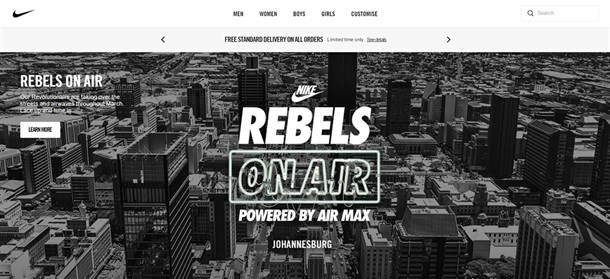
At the Seamless Africa 2017 conference in Cape Town this week, Esther Hoogstad, Nike’s seamless commerce director for Europe, shared advice on how retail brands can target and engage millennials and convert them into loyal customers.
Millennials, and in fact the world, lead increasingly mobile-centric lives. So it wasn’t hard to believe that in terms of engagement channels brands should be using to reach this generation, Hoogstad believes that mobile/social comes out on top, ahead of instore and online. Millennials also expect to see the same brand positioning across all channels, and it’s therefore important to keep brand messages consistent across all platforms.
Communicating with a millennial is not one-sided, and should be looked at as a conversation, said Hoogstad. As consumers, they’re almost as active at brand communication as the brand itself, socially sharing reviews and personally curated content. She also noted that 33% of them opt in to receive communication.
Another interesting statistic she mentioned is that 85% of millennials want personalised content. The good news is that they’ll help you tailor your communication with their willingness to share their personal data with brands.
Generic search volumes have leapfrogged the rest, with online browsers now knowing exactly what they want and searching for specifics - searching for a specific pair of Air Jordans, for example, instead of ‘latest Nike sneaker’. “As a consequence, retailers and brands are scrambling for every search dollar out there. And it’s tough.”
Hoogstad laid out how millennials will define retail in 2017 and beyond, aspects she believes to be key in building brand loyalty.
Relevancy and fun: In a world that is saturated with content, brands need to find ways and platforms to communicate with the millennial and ideally make it fun.” Nike has found that gamification strategies and tools are useful in upping the fun factor.
Experience: Millennials seem to be outgrowing ownership. “The consumer experience of the millennial generation seems to be less about ownership and more about experience. The value of possession is declining.” It’s now less about having a whole collection of sneakers and more about the experience surrounding the purchase and sharing it socially with friends.
Differentiation: Brands and retailers need to differentiate themselves through service and personalisation. Services from urban transport, to travel bookings to food delivery have benefitted from simplified service delivery models, and this level of efficiency is now expected from all brands and across sectors.
Transparency and social engagement: Consumers in general are becoming increasingly conscious of supporting brands that operate ethically, are gentle on the environment, and support the local economy and its producers. They want businesses that are transparent in their operations and their values. Advertise your sustainability initiatives and be transparent about where your products are made and how they are made.

Once you’ve understood the above factors driving millennials to shop, you need to respond to it. To do this, it’s vital to connect with millennial culture. Find out what’s important to them and then redefine the way you engage with them by making content relevant. Using pop culture icons in collaborative projects, launches and advertising is a good way of doing this. “How do they want to engage with you? Which moments in life are important to them? Political moments? Sporting moments? A new fashion launch? Ask them!”
She also said that millennials like exclusivity – special, limited-edition launches and invite-only events. Nike does this well, both in-store and online, releasing limited styles and sizes to create demand. “We deliberately send a few items, create a queue, and let it sell out. Use influencers and make it special to them and they will, in turn, communicate with a wider audience about what’s just launched.”
This air of exclusivity is also why membership models work so well. Hoogstad revealed that members spend 85% more on Nike.com. Entice consumers to become members with exclusive benefits like entry to events and first access to newly launched products. And personalise your content to make them feel extra special.
In an omnichannel retail environment, one can easily neglect the instore experience is the pursuit of e-commerce success. Hoogstad believes that brick and mortar retail is not dead, but it needs to be made into a satisfying experience and consumers need to be given reasons to visit. “Define reasons to come to the store by creating cool consumer experiences, hosting launches and events, and making it easy to try, find and buy items.”
Wrapping up, this is Hoogstad’s succinct advice for ensuring millennials become loyal customers: “membership is the ticket, service is the journey and product is the destination.”
